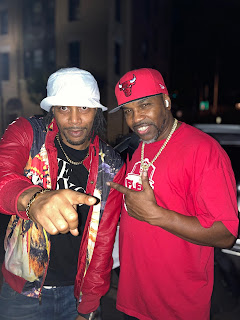The Indispensable Role of DJs for Independent Artist
Introduction:
In the ever-evolving music industry, independent artists face numerous challenges in gaining recognition and reaching a wider audience. However, one crucial element that often goes unnoticed is the role of DJs. These unsung heroes play a pivotal role in promoting independent artists, helping them break through the noise and establish a foothold in the competitive music landscape. In this blog, we will explore the importance of DJs for independent artists and how they contribute to their success.
1. Exposure and Airplay:
DJs act as gatekeepers, curating playlists and selecting tracks to be played on the radio, at clubs, and on streaming platforms. For independent artists, getting their music in front of a larger audience is often a daunting task. DJs, with their expertise and influence, can provide exposure to these artists by featuring their tracks in their sets or on their shows. This exposure can lead to increased airplay, helping independent artists gain recognition and build a fanbase.
2. Breaking New Music:
Independent artists often struggle to compete with major label releases that dominate the mainstream. DJs, however, have the power to break new music and introduce fresh sounds to their audience. By championing independent artists and showcasing their tracks, DJs can create a buzz around their music, generating interest and excitement among listeners. This exposure can be a game-changer for independent artists, opening doors to new opportunities and collaborations.
3. Building Relationships:
DJs are not just tastemakers; they are also connectors. They have extensive networks within the music industry, including other DJs, producers, promoters, and record labels. By building relationships with DJs, independent artists can tap into these networks, gaining access to valuable resources and potential collaborations. DJs often have their fingers on the pulse of the industry, and their support can lead to opportunities for live performances, remixes, and even record deals.
4. Feedback and Constructive Criticism:
DJs have a deep understanding of what works on the dancefloor or in a live setting. Their experience and expertise allow them to provide valuable feedback and constructive criticism to independent artists. This feedback can help artists refine their sound, improve their production quality, and better understand their target audience. DJs' insights can be invaluable in shaping an artist's career and helping them grow creatively.
5. Trendsetting and Influencing:
DJs have a significant influence on music trends and popular culture. They have the power to introduce new genres, sub-genres, and styles to the masses. By supporting independent artists, DJs can shape the musical landscape and contribute to the diversification of mainstream music. Their influence can help break down barriers and create opportunities for independent artists to thrive in a market that often favors commercial success over artistic innovation.
Conclusion:
DJs play a vital role in the success of independent artists. Their ability to provide exposure, break new music, build relationships, offer feedback and influence trends is invaluable for artists trying to make their mark in the music industry. As independent artists continue to navigate the challenges of the ever-changing music landscape, the support and advocacy of DJs remain crucial in their journey toward recognition and success.




.jpg)

Comments
Post a Comment